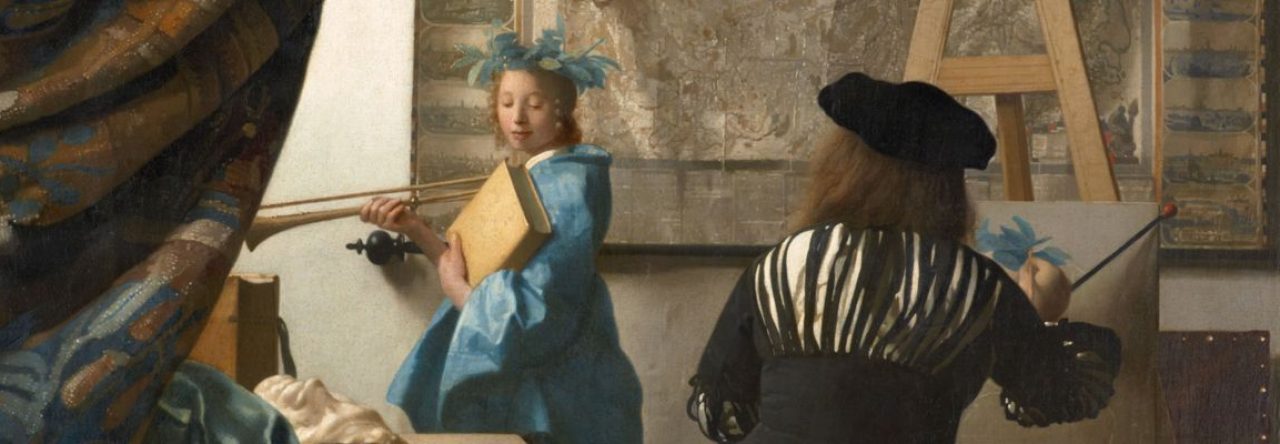
The Roman Orgy (1911) – a short film by French director Louis Feuillade
YouTube Video: Rome – A Perverts’ Paradise
The history of Rome has provided us with a surprising number of nasty girls, and here we will have a look at the most prominent. While the competition is crowded, it remains remarkable that no less than six of them, Claudia Livia Julia (usually called Livilla), Julia Livia (sometimes called Julia Drusi Caesaris filia, daughter of Drusus Caesar), Julia Agrippina the Younger, Claudia Octavia, Julia the Elder, the only daughter of Augustus [read her post on this Blog], and Livia Drusilla (also called Julia Augusta), all came from a single family and all lived within one century (58 BC to AD 68), at the same time as the famous Valeria Messalina [read her post on this Blog], Poppaea Sabina the Younger and Poppaea Sabina the Elder, her mother.




Caveat: “Some sexual attitudes and behaviours in ancient Roman culture differ markedly from those in later Western societies. Roman religion promoted sexuality as an aspect of prosperity for the state, and individuals might turn to private religious practice or “magic” for improving their erotic lives or reproductive health. Prostitution was legal, public, and widespread. “Pornographic” paintings were featured among the art collections in respectable upper-class households. It was considered natural and unremarkable for men to be sexually attracted to teen-aged youths of both sexes, and pederasty was condoned as long as the younger male partner was not a freeborn Roman. “Homosexual” and “heterosexual” did not form the primary dichotomy of Roman thinking about sexuality, and no Latin words for these concepts exist. No moral censure was directed at the man who enjoyed sex acts with either women or males of inferior status, as long as his behaviors revealed no weaknesses or excesses, nor infringed on the rights and prerogatives of his masculine peers. While perceived effeminacy was denounced, especially in political rhetoric, sex in moderation with male prostitutes or slaves was not regarded as improper or vitiating to masculinity, if the male citizen took the active and not the receptive role. Hypersexuality, however, was condemned morally and medically in both men and women. Women were held to a stricter moral code, and same-sex relations between women are poorly documented, but the sexuality of women is variously celebrated or reviled throughout Latin literature. In general the Romans had more flexible gender categories than the ancient Greeks.”

Also: “Prostitution was legal throughout the Roman Empire in all periods. Most prostitutes were slaves or freedwomen. Prostitutes in Rome had to register with the aediles. Despite what might seem to be a clear distinction as a matter of law, the jurist Ulpian opined that an openly promiscuous woman brought the status of prostitute upon herself, even if she accepted no money. The Augustan moral legislation that criminalized adultery exempted prostitutes, who could legally have sex with a married man. Encouraged to think of adultery as a matter of law rather than morality, a few socially prominent women even chose to avoid prosecution for adultery by registering themselves as prostitutes.” [See Wikipedia]

Yet murder and perversion abounded … as seen in the movie “Caligula” [Download] The establishment of the Imperial Court seems to have brought the, er, emancipation of the girls to a flowering …

One may reasonably doubt whether a more murderous, licentious and scandalous breed existed in the annals of mankind, and they certainly matched the infamous males of the clan – the respective emperors of the age, Tiberius, Caligula, Claudius and Nero.


Numbers 10 to 8, featuring: Theodora, Faustina the Younger, Fulvia Flacca Bambula
On Fulvia, politically the most interesting of the ladies and by far the most powerful, there is an exhaustive Master Thesis “A Study of Fulvia”, by Allison Jean Weir [Link to PDF].
https://blogs.transparent.com/latin/the-top-ten-scandalous-women-of-ancient-romepart-i/




Numbers 7 to 4, featuring: Julia the Elder, Valeria Messalina, Claudia Livia Julia, Cleopatra
https://blogs.transparent.com/latin/the-top-ten-scandalous-women-of-ancient-rome-part-ii/







And the top three, featuring: Poppaea Sabina the Younger, Julia Agrippina the Younger, Livia Drusilla

https://blogs.transparent.com/latin/the-top-ten-scandalous-women-in-ancient-romefinale/



Number One: Livia Drusilla 
Here as Goddess Ceres
Livia Drusilla, the long-time wife Augustus, undoubtedly deserves her own article, which is being planned. Praised by the imperial scribes as the faithful wife and mother of the nation, her critics spilled venom and bile about the strange deaths of her adversaries [FN1] and about the willingness with which she fed her husband the youngest girls for the satisfaction of his imperial lust.
[FN1] See Wiki: “Rumour had it that Livia was behind the death of Augustus’ nephew Marcellus in 23 BC. After Julia’s two elder sons by Marcus Vipsanius Agrippa, whom Augustus had adopted as sons and successors, had died, the one remaining son, Agrippa Postumus, was adopted at the same time as Tiberius, but later Agrippa Postumus was sent into exile and finally killed. Tacitus charges that Livia was not altogether innocent of these deaths and Cassius Dio also mentions such rumours. There are also rumours mentioned by Tacitus and Cassius Dio that Livia brought about Augustus’ death by poisoning fresh figs. Augustus’ granddaughter was Julia the Younger. Sometime between 1 and 14 AD, her husband Lucius Aemilius Paullus was executed as a conspirator in a revolt. Modern historians theorize that Julia’s exile was not actually for adultery but for involvement in Paullus’ revolt. Livia Drusilla plotted against her stepdaughter’s family and ruined them. This led to open compassion for the fallen family. Julia died in 29 AD on the same island where she had been sent in exile twenty years earlier.


But if you were curious and DID peek, send us a comment on the debauchery you witnessed! Gory details welcome!



(© John Vincent Palatine 2019)
Hits: 1869





































